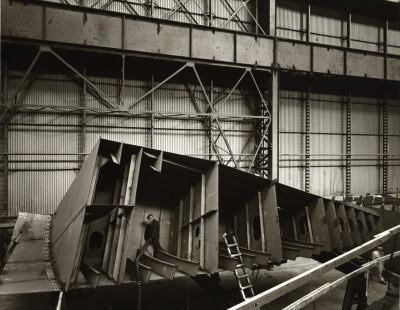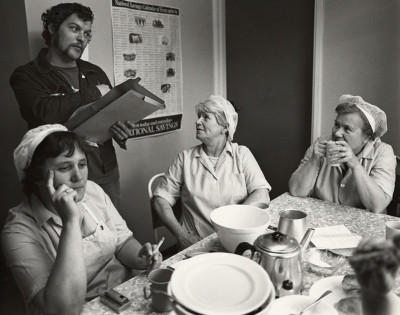
Surviving on Darlington's Shop Floors
Richard Grassick
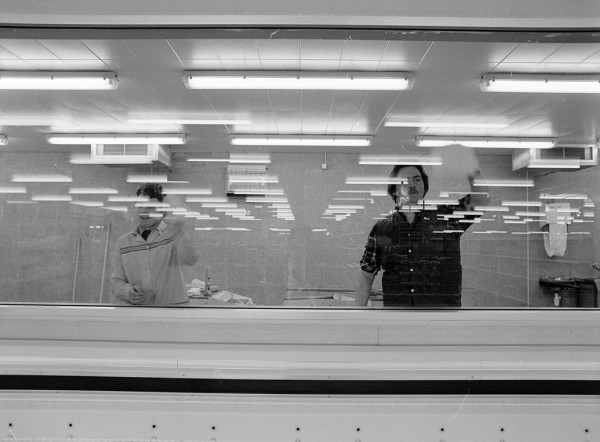
Surviving on Darlington's Shop Floors
Richard Grassick
- Photographic
- Industrial
- Northern Documentary
- Place
- Portraits
- UK Documentary
- Work & Unemployment
- 1980 – 1989
- County Durham
- UK
Photographed in 1980 and 1981, Surviving on Darlington’s Shop Floors is a documentation of the town’s manufacturing industries at a moment of growing uncertainty. Made before Richard Grassick joined the Amber Collective, the work focuses on the people working in Darlington’s larger factories, as deindustrialisation was beginning to take hold in the North East. Developed through a series of visits to different workplaces, the photographs aim to capture the daily realities of life on the shop floor.
Originally presented as images and text, in doing so, it raised questions about how industrial labour is represented and how documentary photography can be used to reflect on work and power. Grassick’s approach was shaped by a desire to move beyond the surface of factory spaces, looking instead at the pressures, routines and identities shaped by work. The combination of portraits, interiors and fragments of conversation helped to create a more layered account of industrial experience.
Though made more than forty years ago, Surviving on Darlington’s Shop Floors resonates with current questions about labour, value and economic change. It offers an early example of Grassick’s interest in social documentary and set the tone for his later work with Amber, where he continued to explore themes of work, community and representation.
Richard Grassick is a British photographer and filmmaker whose work often focuses on communities in transition, both locally and internationally. He was an active collaborator with Amber Films and Side Gallery through the 1980s and 90s, producing a range of socially engaged projects that explored identity, belonging and representation.
With a background in both still and moving image, Grassick has worked extensively across Europe, particularly in Germany, developing projects that connect personal stories with broader political contexts. His practice is rooted in documentary traditions, but often extends into experimental and participatory modes of production.
Grassick’s commitment to collaborative practice and underrepresented voices has defined much of his career, and his work remains part of the wider legacy of community-focused photography and film in Britain.
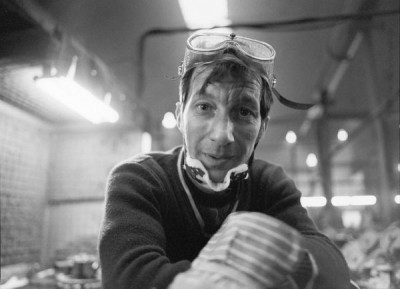
Surviving on Darlington's Shop Floors: BSA Foundries, 10th July 1980
- Ref: 209-007-LBW
- Date: 1980
- Artist: Richard Grassick
- Copyright: © Richard Grassick
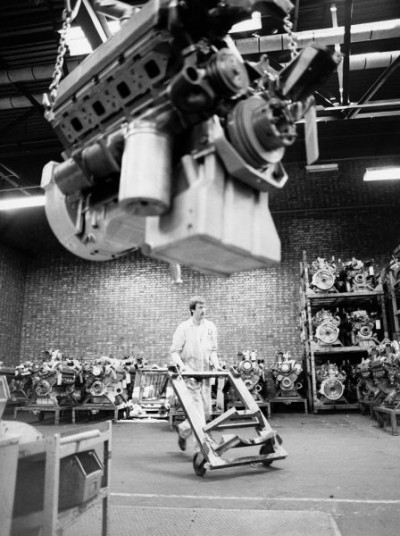
Surviving on Darlington's Shop Floors: Cummins Engines, 8th May 1980
- Ref: 209-003-PBW
- Date: 1980
- Artist: Richard Grassick
- Copyright: © Richard Grassick
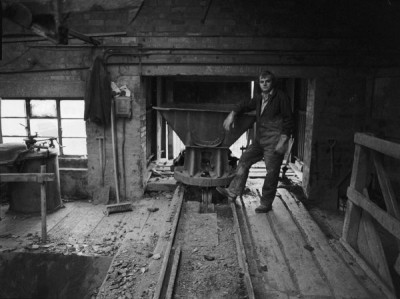
Surviving on Darlington's Shop Floors: Crossleys Bricks, 29th October 1980
- Ref: 209-016-LBW
- Date: 1980
- Artist: Richard Grassick
- Copyright: © Richard Grassick
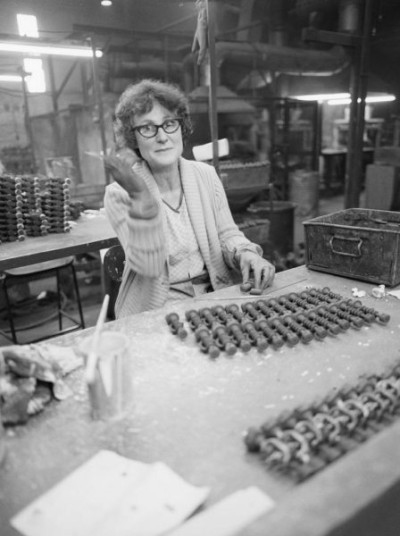
Surviving on Darlington's Shop Floors: BSA Foundries, 15th July 1980
- Ref: 209-008-PBW
- Date: 1980
- Artist: Richard Grassick
- Copyright: © Richard Grassick
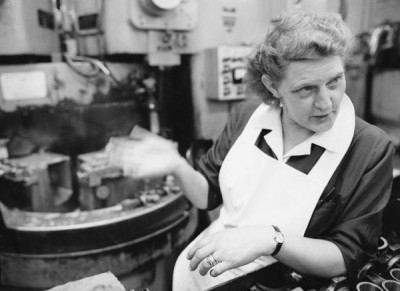
Surviving on Darlington's Shop Floors: Cummins Engines, May 1980
- Ref: 209-006-LBW
- Date: 1980
- Artist: Richard Grassick
- Copyright: © Richard Grassick
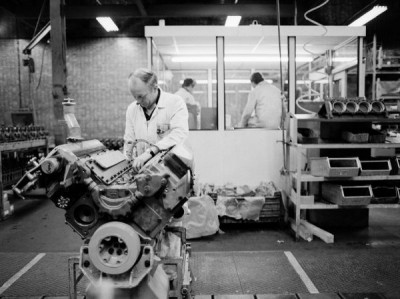
Surviving on Darlington's Shop Floors: Cummins Engines, 8th May 1980
- Ref: 209-002-LBW
- Date: 1980
- Artist: Richard Grassick
- Copyright: © Richard Grassick
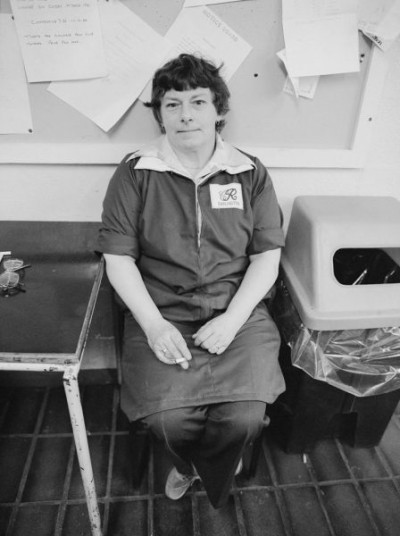
Surviving on Darlington's Shop Floors: Carreras Rothmans, 22nd February 1981
- Ref: 209-020-PBW
- Date: 1981
- Artist: Richard Grassick
- Copyright: © Richard Grassick
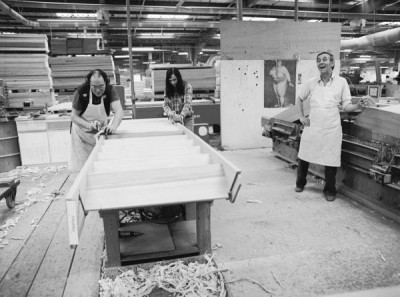
Surviving on Darlington's Shop Floors: Magnet Joinery, 5th November 1980
- Ref: 209-017-LBW
- Date: 1980
- Artist: Richard Grassick
- Copyright: © Richard Grassick
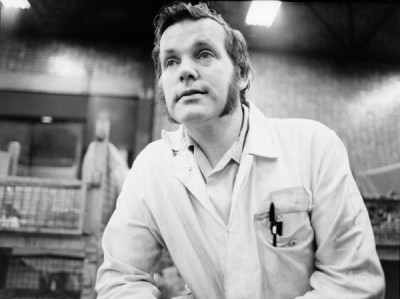
Surviving on Darlington's Shop Floors: Cummins Engines, 8th May 1980
- Ref: 209-004-LBW
- Date: 1980
- Artist: Richard Grassick
- Copyright: © Richard Grassick
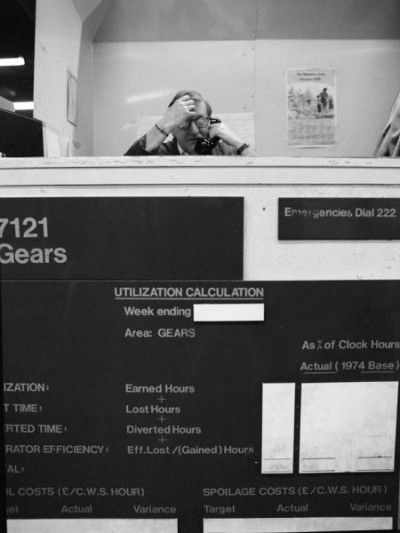
Surviving on Darlington's Shop Floors: Cummins Engines, 17th October 1980
- Ref: 209-015-PBW
- Date: 1980
- Artist: Richard Grassick
- Copyright: © Richard Grassick
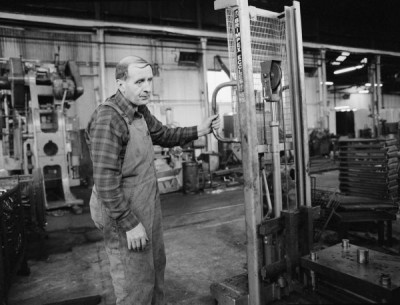
Surviving on Darlington's Shop Floors: Henry Boot Engineering, 15th July 1980
- Ref: 209-013-LBW
- Date: 1980
- Artist: Richard Grassick
- Copyright: © Richard Grassick
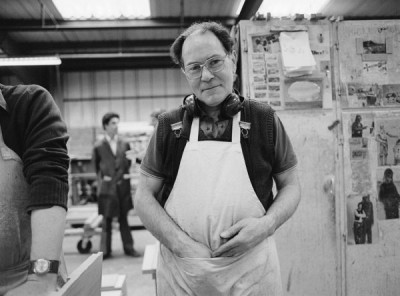
Surviving on Darlington's Shop Floors: Magnet Joinery, 5th November 1980
- Ref: 209-018-LBW
- Date: 1980
- Artist: Richard Grassick
- Copyright: © Richard Grassick
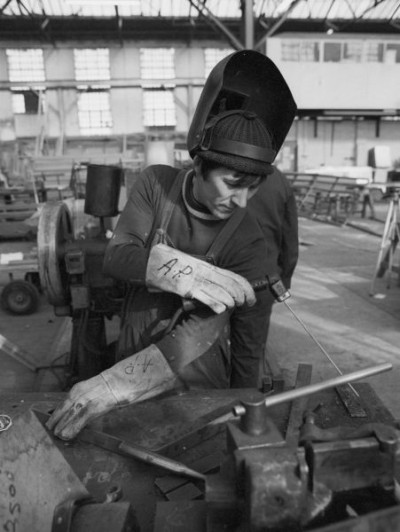
Surviving on Darlington's Shop Floors: Amdega, Faverdale Industrial Estate. 9th October 1980
- Ref: 209-011-PBW
- Date: 1980
- Artist: Richard Grassick
- Copyright: © Richard Grassick
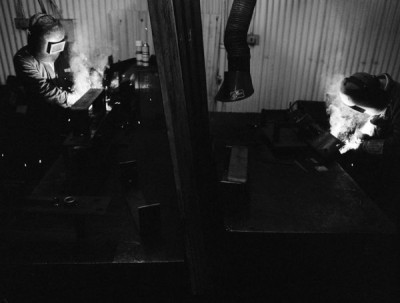
Surviving on Darlington's Shop Floors: Darlington & Simpson Rolling Mills, 15th July 1980
- Ref: 209-014-LBW
- Date: 1980
- Artist: Richard Grassick
- Copyright: © Richard Grassick

Surviving on Darlington's Shop Floors: Amdega, Faverdale Industrial Estate, 9th October 1980
- Ref: 209-012-LBW
- Date: 1980
- Artist: Richard Grassick
- Copyright: © Richard Grassick
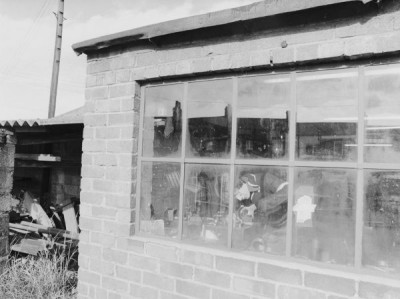
Surviving on Darlington's Shop Floors: Douglan, Dinsdale, 7th October 1980
- Ref: 209-010-LBW
- Date: 1980
- Artist: Richard Grassick
- Copyright: © Richard Grassick
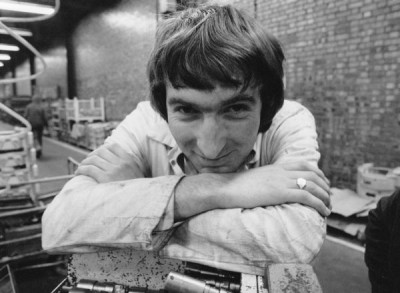
Surviving on Darlington's Shop Floors: Cummins Engines, 8th May 1980
- Ref: 209-005-LBW
- Date: 1980
- Artist: Richard Grassick
- Copyright: © Richard Grassick
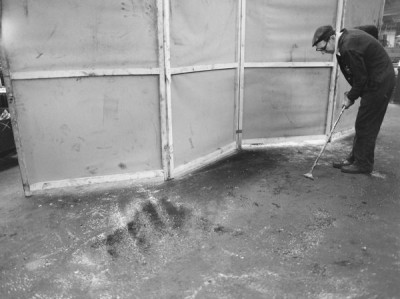
Surviving on Darlington's Shop Floors: Torrington, 24th July 1980
- Ref: 209-009-LBW
- Date: 1980
- Artist: Richard Grassick
- Copyright: © Richard Grassick
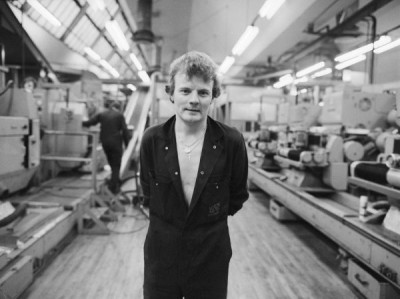
Surviving on Darlington's Shop Floors: Carreras Rothmans, 22nd January 1981
- Ref: 209-019-LBW
- Date: 1981
- Artist: Richard Grassick
- Copyright: © Richard Grassick
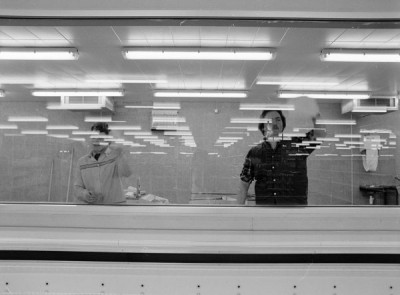
Surviving on Darlington's Shop Floors: Morrisons of North Road, 1980/81
- Ref: 209-001-LBW
- Date: 1980/81
- Artist: Richard Grassick
- Copyright: © Richard Grassick
Related Works

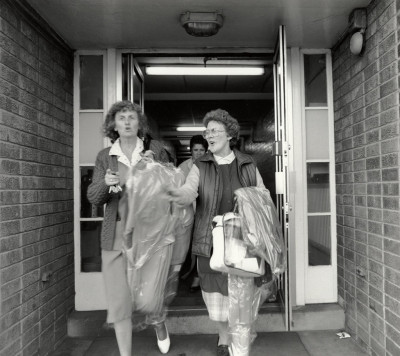
Ramar Goodbye
Richard Grassick
Photographic
